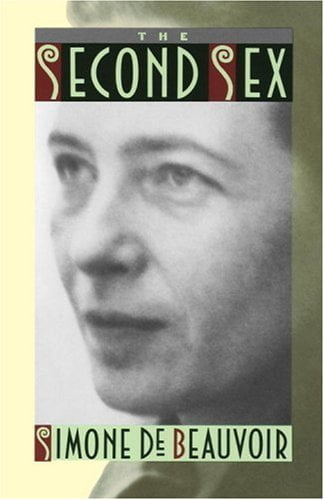Your pocket-sized Guide to… French philosophy: Simone de Beauvoir
How well do you know your French philosophers? Test yourself and learn something new with our pocket-sized guide to French philosophy. You’ll be sure to impress at your next dinner party…
Simone de Beauvoir was a French existentialist philosopher whose book ‘The Second Sex’ challenged the accepted role of women in society.
La vie à Paris
- Born on 9 January 1908 in Paris
- Studied Philosophy at the Sorbonne²
- Lifelong companion of Sartre
- Won the Prix Goncourt for ‘The Second Sex’ in 1954
- Died of pneumonia on 14 April 1986 in Paris
La société
Simone de Beauvoir noted that throughout history, humanity had been defined by males, and therefore, from a male perspective. De Beauvoir argued that society was “codified by man”¹ and that women should define themselves rather than conforming to society’s definition of a woman: as a wife, a mother or a domestic goddess.
De Beauvoir also explores how the experience of maternity can be “crushing if the woman is obliged to undergo frequent pregnancies”¹, but can also be enjoyable “if she procreates voluntarily and if society comes to her aid during pregnancy and is concerned with child welfare”.
Therefore, society’s expectation of women to become mothers can be a great burden upon women.
 ‘Le Deuxième Sexe’ – 1949
‘Le Deuxième Sexe’ – 1949
In her book ‘The Second Sex’, de Beauvoir describes the differences between males and females in terms of biology, psychology and history. De Beauvoir describes the differences between males and females in animals such as fish and insects as well as humans.
For example, de Beauvoir describes how human gametes differ, noting the immobility of the egg and the mobility of the sperm, the large size of the egg and the comparatively small size of the sperm – yet both are equally important in conception.
L’egalité
De Beauvoir describes how sexual equality was measured by the ways in which women were similar to men.
However, de Beauvoir argued that the only way to truly emancipate women was “to refuse to confine her to the relations she bears to man” and to allow women to have an “independent existence”, because the differences between men and women make it inconceivable to judge them in relation to one another. By doing this, de Beauvoir writes, “the human couple will find its true form”.
What’s your definition of sexual equality? Does society expect too much of women? Share your thoughts in the comments, below.
Read more from our pocket-sized guide to French philosophy:1. Jean-Paul Sartre
2. Simone de Beauvoir (this page)
3. René Descartes
4. Voltaire References:
1. Simone de Beauvoir, on the Philosophy Archive at marxists.org.
2. Simone de Beauvoir – Biography, via The European Graduate School.
3. ‘The Philosophy Book’, by DK Publishing (2010) Image Credits:
1. Simone de Beauvoir, via Jacket Mechanical
2. Sartre Beauvoir, via Wikimedia Commons
3. Second Sex, via Wikipedia



 ‘Le Deuxième Sexe’ – 1949
‘Le Deuxième Sexe’ – 1949





Bravo Selina for your article! I love it!
Thank you very much Emmanuelle! I’m glad you liked it. There will be more to follow so watch this space!
Sexual equality? When men and women can have the relationships they choose without being castigated for them.
And society definitely does expect too much of women–there are so many articles for women talking about work and life balance, and the sacrifices they ‘must’ make for the sake of their children/family…and yet, there’s a dearth of similar articles or expectations for men, who are expected to put work at the forefront and not worry.
Thank you very much for your comment. Absolutely, but I would go even further by saying that sexual equality is when men and women can do anything without being castigated differently. Thank you for raising such an interesting point about articles aimed at women and men, I never thought about that.
What an amazing woman! Merci Selina! I look forward to reading the next chapter!
Merci beaucoup for your comment Adele. You can read my article on De Beauvoir’s lifelong companion and fellow existentialist philosopher Jean-Paul Sartre here: https://www.myfrenchlife.org/2013/05/17/your-pocket-sized-guide-to-french-philosophy-jean-paul-sartre/